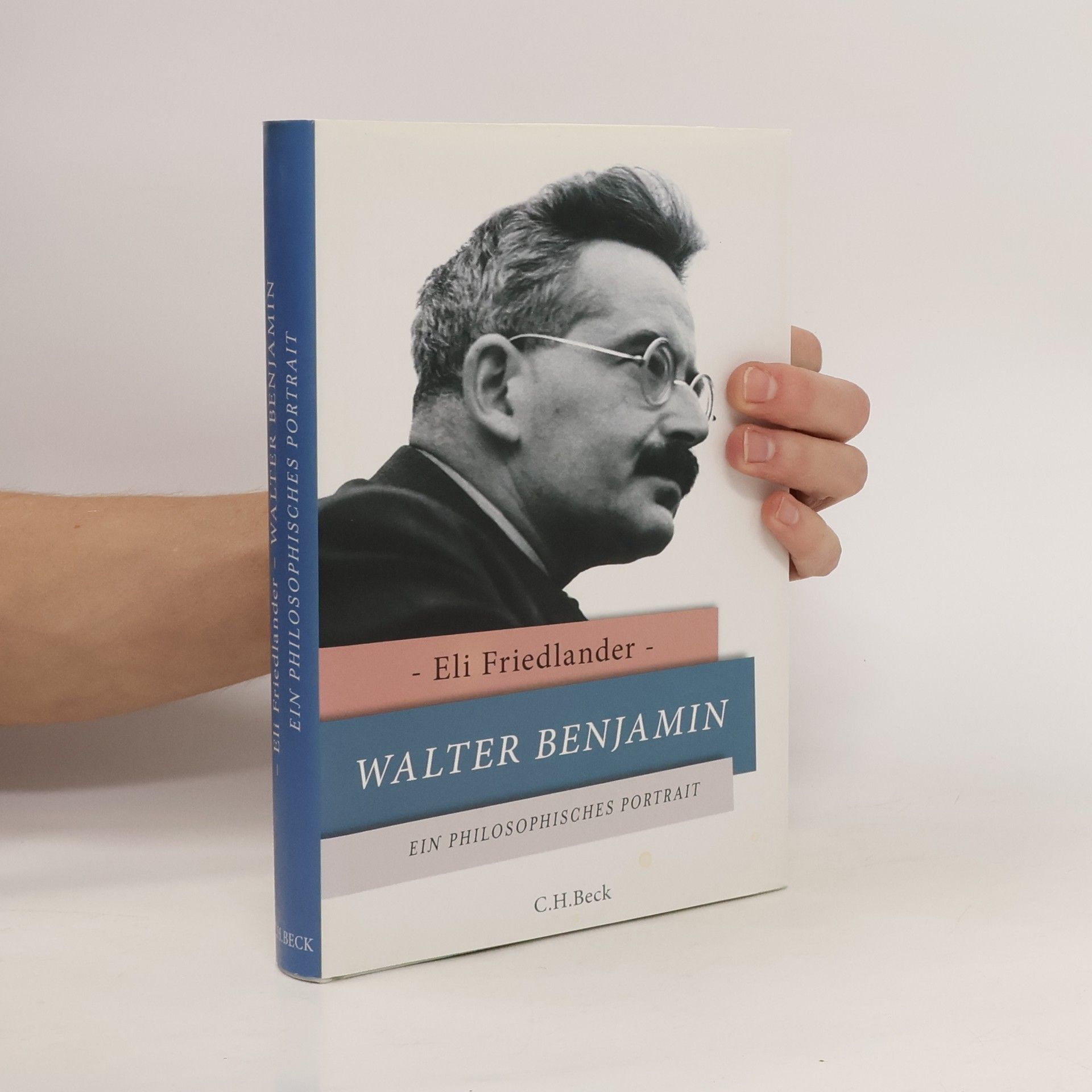Walter Benjamin wird oft als Kulturkritiker angesehen, dessen überwältigendes Aufgebot an herausragenden und eigenwilligen Werken nicht viel mehr zusammenhält als der Eindruck, sie trügen eben den Stempel seines nicht weiter zu spezifizierenden „Genius“. In Eli Friedlanders Darstellung ist Benjamins OEuvre ein einzigartiges kohärentes philosophisches System, das fest in der philosophischen Denktradition verankert ist. Friedlander findet bereits in Benjamins Frühwerk die Grundgedanken vorformuliert, die für die unterschiedlichen Schichten seines philosophischen Vorhabens charakteristisch sind. Er führt den Leser von da aus zu Benjamins Überlegungen zum „dialektischen Bild“, einem Schlüsselbegriff des Passagenwerks, zur Natur der Sprache, der Beziehung zwischen Schönheit und Wahrheit, der „Verkörperung von Ideen“, zu Traum und geschichtlichem Erwachen, zum Verhältnis von Mythos und Geschichte sowie dem, was Benjamin „Nachleben“ und „Verwirklichung der Bedeutung“ nennt. Diese Ideen werden sowohl systematisch aus sich selbst heraus wie auch in Bezug auf Schlüsselgestalten der Philosophiegeschichte untersucht. Im Zentrum steht das Passagenwerk. Friedlander begreift dieses unvollendete Werk als die zentrale Bühne, auf der die früheren philosophischen Grundgedanken ihren Auftritt haben.
Eli Friedlander Bücher


Walter Benjamin and the Idea of Natural History
- 350 Seiten
- 13 Lesestunden
In this incisive new work, Eli Friedlander demonstrates that Walter Benjamin's entire corpus, from early to late, comprises a rigorous and sustained philosophical questioning of how human beings belong to nature. Across seemingly heterogeneous writings, Friedlander argues, Benjamin consistently explores what the natural in the human comes to, that is, how nature is transformed, actualized, redeemed, and overcome in human existence. The book progresses gradually from Benjamin's philosophically fundamental writings on language and nature to his Goethean empiricism, from the presentation of ideas to the primal history of the Paris arcades. Friedlander's careful analysis brings out how the idea of natural history inflects Benjamin's conception of the work of art and its critique, his diagnosis of the mythical violence of the legal order, his account of the body and of action, of material culture and technology, as well as his unique vision of historical materialism. Featuring revelatory new readings of Benjamin's major works that differ, sometimes dramatically, from prevailing interpretations, this book reveals the internal coherence and philosophical force of Benjamin's thought.